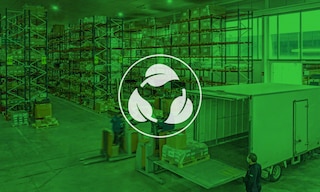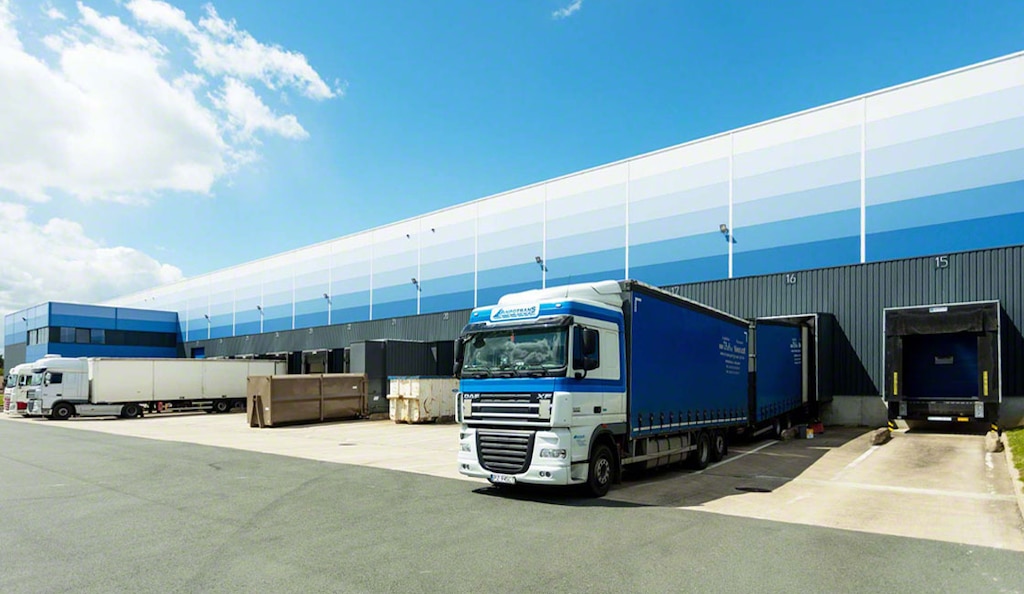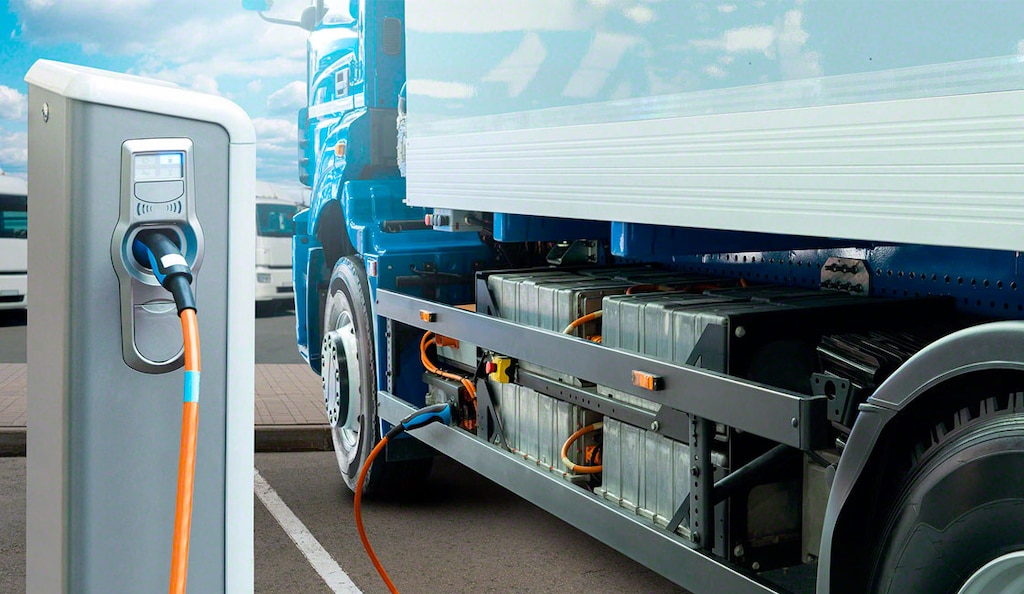
The road to sustainable logistics
Sustainable logistics is becoming more and more popular among companies in the industry. Businesses are looking to reduce the environmental impact of their transport operations and deliver goods without compromising efficiency in their supply chains. Consumers, meanwhile, demand green companies but expect them to maintain the consumer standards they’ve become accustomed to, such as same-day deliveries and free product returns.
Logistics managers are charged with offering quality service and, at the same time, ensuring a greener, more sustainable environment. Planning delivery routes and recycling packaging materials are just some measures for shrinking the carbon footprint of logistics operations in today’s world.
A study by consulting firm Ernst & Young underlines the need to promote sustainable logistics within companies: “More than 90% of an organisation’s greenhouse gas emissions and 50% to 70% of operating costs are attributable to supply chains. Beyond risk avoidance and compliance, organisations are seeking ways to create long-term value by embedding sustainability into supply chain operations.”
What is sustainable logistics?
Sustainable logistics consists of a set of practices that look to limit the environmental impact of operations such as transport and warehousing while optimising time and cost. As explained in the academic paper Green logistics and circular economy, sustainable logistics “is intended to assure that logistic processes are carried out correctly while minimising their adverse impact on the natural environment.”
The concept of sustainable logistics is key in the development of a circular economy, a production, distribution and consumption model that involves recycling and reusing materials to prolong their usefulness as far as possible and generate less waste.
These are the main goals of sustainable logistics:
- Know and quantify the carbon footprint of the different logistics operations. Measuring the environmental impact of the supply chain enables companies to implement actions that reduce greenhouse gas emissions.
- Plan operations to employ resources sustainably. Sustainable logistics is based on the design of logistics and transport plans that optimise the use of fuel, vehicles and shipping containers. Companies can decrease the pollution caused by the movement of goods by integrating strategies such as intermodal transport and electric lorries in logistics planning.
- Foster sustainability across the supply chain. Sustainable logistics isn’t efficient if it’s only enforced in one link of the chain. Sustainability must be present in all phases: from product design and materials distribution to delivery of goods to end customers.

Processes involved in sustainable logistics
Sustainable logistics has a twofold objective: to minimise the environmental impact of operations without jeopardising competitiveness.
transport is a fundamental phase of sustainable logistics, in both the supply of raw materials to production centres and the subsequent distribution of orders to end customers. To lessen the carbon footprint in transport, it’s necessary to plan routes that streamline the movement of goods. Proper fleet management limits pollution from transport and promotes efficiency by preventing vehicles from idling in yards and loading docks.
Optimising warehouse management and increasing operational throughput boosts sustainable logistics. A facility with a lower error rate in order picking and consolidation decreases the number of product returns, one of the costliest warehousing processes.
Sustainable logistics also entails curbing the unnecessary use of materials in the goods dispatch process. Implementing a logistics program that guides operators in packing, labelling and wrapping operations increases productivity and avoids the risk of errors in the warehouse.
Differences between sustainable and reverse logistics
Although related, reverse logistics and sustainable logistics are often confused. Reverse logistics relates to the operations performed when an order is returned. On the other hand, sustainable logistics is the set of practices designed to lessen environmental impact while maintaining the efficiency of end-customer service.
The two concepts are interconnected, however, because you can’t have sustainable management without effective reverse logistics practices.
The main difference between reverse logistics and sustainable logistics is that the former is concerned only with methods for leveraging materials in product returns, while sustainable logistics has a more holistic approach. Its purpose is to implement practices along the supply chain to limit organisations’ carbon footprint and foster greener operations.
Technology boosts sustainable logistics
According to the study Embracing technology and sustainability in freight transport by consulting firm McKinsey, new technologies will play a critical role on the road to sustainable logistics. “Rapid decarbonisation of the sector will require industry leaders to rethink long-term infrastructure investments, embracing both technology and sustainability.”
Innovations such as logistics process automation and digitalisation via a warehouse management system (WMS) eliminate the risk of error in operations such as the movement of materials, order picking and lorry loading. Fewer mistakes mean fewer product returns in the warehouse, making businesses more sustainable.

Sustainable logistics is constantly evolving. Examples of this are solutions such as electric lorries and route management programs. “Now is the time to scale innovations — such as electric vehicles, fast-charging infrastructure and hydrogen fuel cells — to enhance the sustainability and resiliency of our freight transport system.” The goal, indicate the authors of the McKinsey report, is to “reduce the sector’s outsize impact on the environment and protect infrastructure from the effects of climate change.”
Sustainable logistics: greener practices and efficiency for the supply chain
Sustainable logistics spans the set of actions, strategies and practices geared towards maintaining a balance between sustainability and productivity in operations such as storage and transport of goods.
More and more companies are incorporating sustainability as a cornerstone of their business strategy. After all, sustainable logistics can give them a competitive edge. Warehouse automation and digitisation foster greener, more sustainable processes without diminishing the quality of service. At Mecalux, we have a wide range of automated and digital solutions to optimise businesses’ logistics operations. Be sure to get in touch. One of our expert consultants will advise you on the best solution for your organisation.
